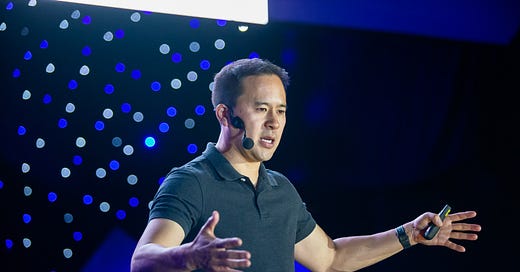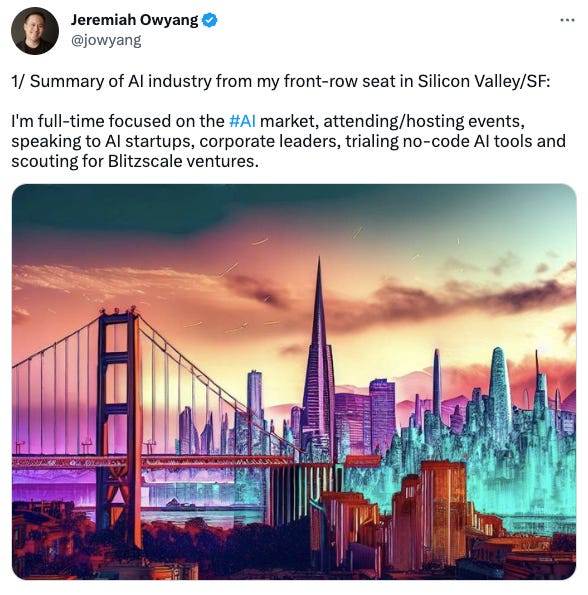Jeremiah Owyang on emerging AI trends, integrating AI models into products, and building AI-First companies
Product State Q&A
Jeremiah Owyang is the Founder at Catalyst Companies. He’s a LP at Blitzscaling and Superlayer. He was formerly CMO at RLY Network Association, Founding Partner at Kaleido Insights and Altimeter Group, and Senior Analyst at Forrester.
Website / LinkedIn
EC: What are the emerging AI trends product people should pay attention to?
JO: There are a few trends:
A battle between AI models is happening, including well-funded VC-backed models, OpenAI (who has partnered with Microsoft), open-source versions in the Hugging Face community, and those from Google and Amazon. This battle of the AI giants is reminiscent of the early days of social networks.
AI startups with access to proprietary data have an outsized advantage to win specific markets and to partner with corporate entities who don't want to give their valuable data away.
AI ‘Autonomous Agents’ are the next trend that will catch the industry by storm.
Product Managers should pay attention to these trends, as they will help them decide how to integrate.
There are broader trends emerging that I tweeted about earlier today:
EC: If you were a Product Manager, how might you integrate AI into an existing product?
JO: For product managers, the biggest trend is this: Every product will be an AI product, even if it's an analog product.
AI will manage the design, supply chain, and customer interactions.
Product managers face an important choice now: To build — or join.
Should they build their own AI models, which require extensive computing resources, know-how, and data… Or should they integrate their product into an existing AI ecosystem by using APIs, plugins, and more for rapid adoption where customers already are?
This is a critical question that could lead to company growth or failure.
EC: What should Founders consider before starting an AI-centric company?
JO: As a scout for Blitzscaling Ventures, who I've been an LP for for a number of years, I've been building a thesis on what criteria will result in an AI company that can stand the test of time.
The first thing is having the mindset of ‘AI first:’ Using AI before using humans, trying to automate key processes, seeing where it breaks, fixing and repeating.
Founders like Matt Schlicht & Ben Parr at Octane.ai from Octane talk about these methods and how they’re building products with AI.
Secondly, it's critical that product leaders determine how they will build defensive data sets that are not just openly available to the existing AI model giants.
It's well-discussed here in Silicon Valley that there are few moats for AI startups.
“For product managers, the biggest trend is this: Every product will be an AI product, even if it's an analog product.”
- Jeremiah Owyang






